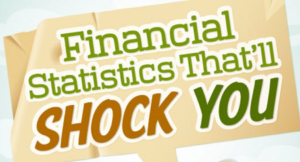 "If you decide to make the leap and launch a business, the people in your life — from family and friends to investors — will all have opinions that they will gladly share with you, sometimes whether you ask them to or not.
"If you decide to make the leap and launch a business, the people in your life — from family and friends to investors — will all have opinions that they will gladly share with you, sometimes whether you ask them to or not.
"The fact of the matter is, you can take in all the advice in the world from the most respected sources, but if it doesn’t feel right to you, you have to trust vision and conviction enough to go your own way."
 "Giant public corporations are major players in the American economy, and their headquarters are scattered across the states.
"Giant public corporations are major players in the American economy, and their headquarters are scattered across the states.
 "While you can
"While you can  "
" "In most of America, earning $100,000 a year could be considered a sign of success. But in many cities, someone making $100,000 a year will just be scraping by.
"In most of America, earning $100,000 a year could be considered a sign of success. But in many cities, someone making $100,000 a year will just be scraping by.
 "Opponents of job outsourcing are making a holiday-season appeal to President Trump: Stop U.S. companies from forcing American workers to train the very same cheaper foreign laborers who will soon replace them.
"Opponents of job outsourcing are making a holiday-season appeal to President Trump: Stop U.S. companies from forcing American workers to train the very same cheaper foreign laborers who will soon replace them.
 "Not the worst, just the most miserable.
"Not the worst, just the most miserable.
 Fast food can be a polarizing topic.
Fast food can be a polarizing topic.
 "Although the average company is more tolerant today than ever before,
"Although the average company is more tolerant today than ever before,  How does our spending compare to average Americans?
How does our spending compare to average Americans?